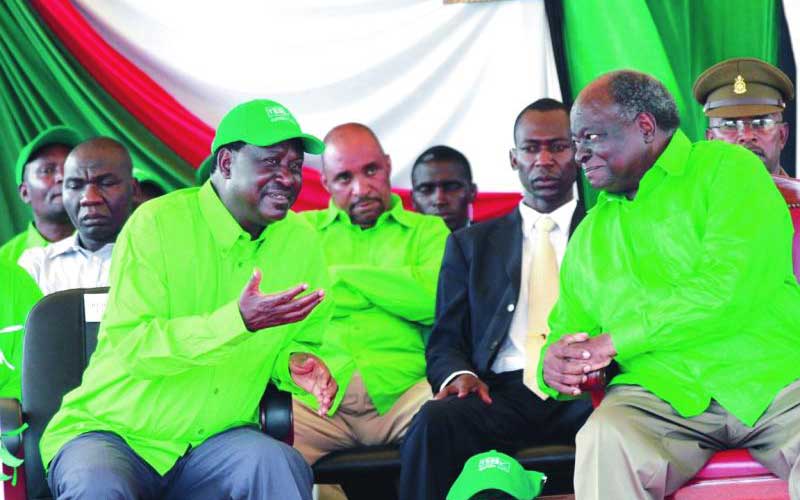×
The Standard e-Paper
Join Thousands Daily

Former PM Raila Odinga with former President Mwai Kibaki during a Yes referendum campaign in Mombasa in 2010. [File, Standard]
Kenyans are once again caught up in the midst of constitutional reforms debate, with the political class torn between a presidential and parliamentary democracy.